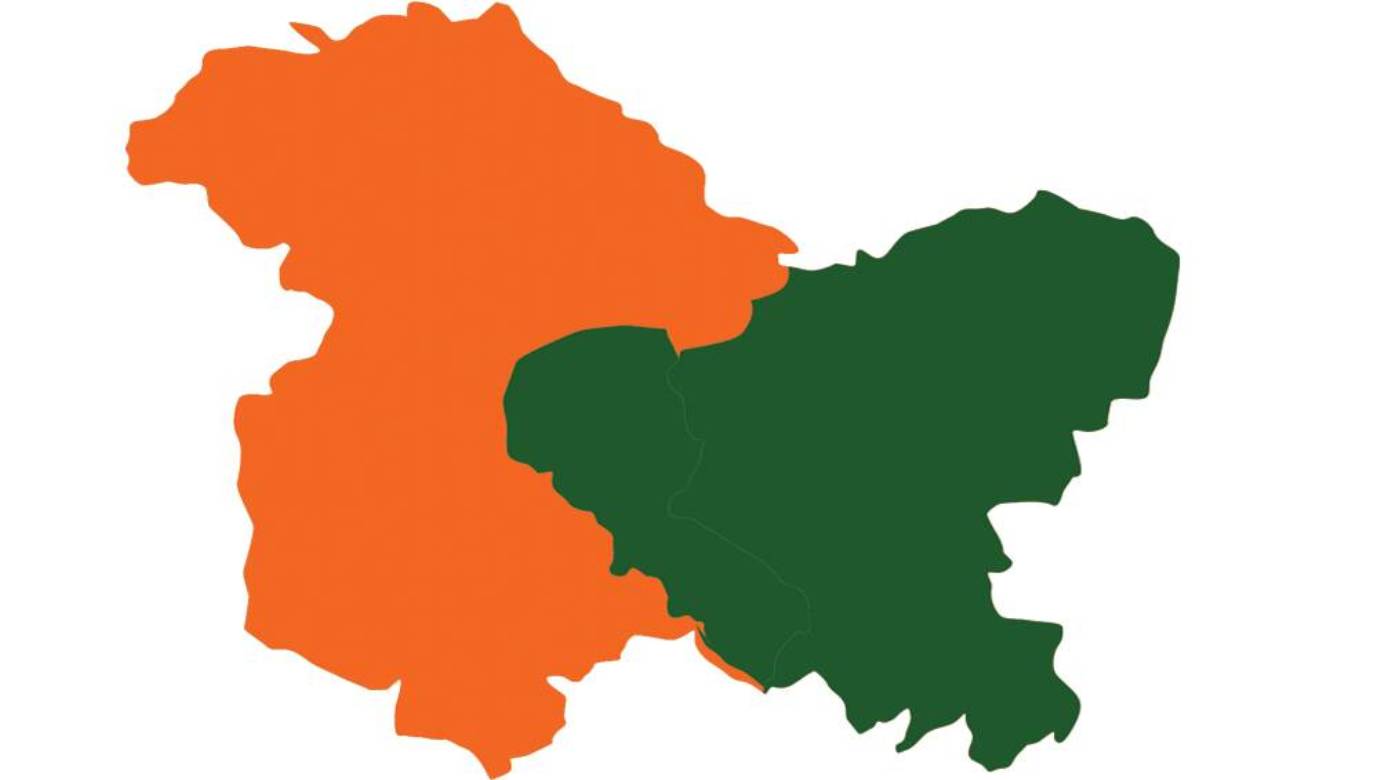Exercise likely to take 14 months
*Comm to be set up after UT comes into existence
Sanjeev Pargal
JAMMU, Sept 4: The Election Commission of India is likely to adopt Uttarakhand pattern of Delimitation Commission for Jammu and Kashmir to undertake exercise for delimitation of 90 Assembly constituencies in the Legislature of J&K Union Territory, which will come into existence on October 31.
“Process of setting up of the Delimitation Commission by the Election Commission will be taken up only after Jammu and Kashmir formally switched over to the Union Territory on October 31 and a notification is issued by the Union Ministry of Home Affairs according 90-seat Assembly to it,” official sources told the Excelsior.
They said Uttarakhand pattern was best suited for Jammu and Kashmir as compared to Chhattisgarh and Jharkhand, the latest States to be formed in the country as Jammu and Kashmir was also a hilly State like Uttarakhand, which has 70-seat Assembly and five Parliamentary constituencies.
J&K too has five Lok Sabha seats after declaration of Ladakh as separate Union Territory while it has been granted 90-seat Assembly, an increase of seven seats. In addition to 90 seats, 24 seats in Jammu and Kashmir Assembly are reserved for Pakistan occupied Kashmir (PoK).
“Delimitation of Assembly constituencies in Uttarakhand when it was carved out of Uttar Pradesh had taken 14 months,” sources said, adding that the similar exercise in Jammu and Kashmir could also take almost an equal time.
Sources said since majority of areas in both Jammu and Kashmir and Uttarakhand were hilly, the Assembly constituencies might be based on same pattern. However, all this depends on the Commission members, which have to be nominated by the Election Commission of India. A serving Deputy Election Commissioner has to be a member of the Commission.
Uttarakhand, Jharkhand and Chhattisgarh were the latest States in the country. Uttarakhand was carved out of Uttar Pradesh, Jharkhand from Bihar and Chhattisgarh from Madhya Pradesh.
Jammu and Kashmir and Ladakh have now become the latest Union Territories in the country though they will formally come into existence on October 31, as per a notification of the Ministry of Home Affairs. Ladakh as a Union Territory hasn’t been granted the Assembly as its two districts-Leh and Kargil have Autonomous Hill Development Councils, whose representatives are elected by the people while J&K was given 90-member Assembly in the Jammu and Kashmir Reorganization Act, which was passed by the Parliament and approved by President Ram Nath Kovind.
Sources said MHA, which had drafted the J&K Re-organization Bill, will first write to the Election Commission for undertaking the exercise of delimitation of constituencies following increase of seven seats for the Legislative Assembly.
Jammu and Kashmir State had 111 seats including 24 reserved for PoK while elections were held for 87 seats. With creation of Ladakh as Union Territory, four seats of the region were reduced and the Assembly was left with 83 seats. However, with increase of seven seats, J&K UT will have an Assembly of 90 seats. Two Women MLAs will be nominated to the House like the past.
In the previous Assembly, Kashmir had 46 seats, Jammu 37 and Ladakh four.
“Elections to the Legislative Assembly will be held only after delimitation of Assembly constituencies is completed,” sources said.
As per the legislation, the delimitation of Assembly constituencies will be carried out on the basis of 2011 census.
The delimitation of Assembly seats has become necessity as it would be treated as new Assembly altogether with reservation for Scheduled Castes and Scheduled Tribes. The Scheduled Castes enjoyed reservations in the State Assembly also where seven constituencies were reserved for them including Chhamb, Domana, RS Pura, Samba, Hiranagar, Chenani and Ramban while STs had been denied political reservations.
“The STs will get political reservations for the first time in the history of Jammu and Kashmir,” sources pointed out, and said number of seats to be reserved for the STs is yet to be decided.
Worthwhile to mention here that seats reserved for SCs had to be rotated after every two terms but in J&K State Assembly, four elections were held on the same seats without rotating them. The Delimitation Commission could now reserve seats in different areas for the SCs, they said.


